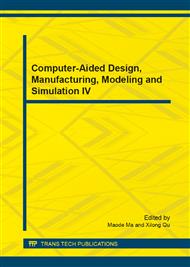p.181
p.186
p.191
p.196
p.201
p.206
p.210
p.216
p.221
Impact Model and Efficiency Analysis on Network Storage Technology Compared with Semiconductor Circuit
Abstract:
Memory is to experience things that carry out the psychological process of accumulation and preservation, which plays an important role for College students’ English learning. There are many factors affecting the memory efficiency of College English, such as learning, memory skills and so on. In order to improve the memory efficiency, the more researchers are to explore from the perspective of information cognition, the emotional level’s research is less. So,on the basis of the university students’ emotional education and college students' English memory regularity, to presented emotional College English memory model, and the establishing process of English memory model carries on the theory derivation, finally through the English memory experiment, analysis emotion education on the effect of College students' English memory efficiency.
Info:
Periodical:
Pages:
201-205
Citation:
Online since:
October 2014
Authors:
Price:
Сopyright:
© 2014 Trans Tech Publications Ltd. All Rights Reserved
Share:
Citation:


